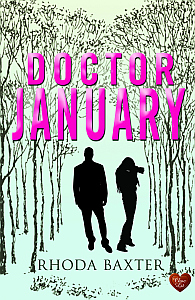I’m not naturally a funny person. I’m more likely to be the one who blurts out an unintentional double entendre (who then has to rewind in my head what I said to figure out why everyone else is laughing *grin*) than to be the one making a joke on purpose.
However, I like including humor in my stories, and I love reading stories that contain a fair amount of humor. Most genres benefit from including touches of humor here or there—even the dark and angsty stories.
So I jumped at the chance to include an expert on comedy writing among my vacation-fill-in guest posters. Rhoda Baxter has presented on this topic at the UK’s Romantic Novelists Association conference, and she’s here to share her tips with us. (And even though her focus is on romantic comedy, her tips apply for adding humor to any genre.)
Maybe she can even help me. *snicker* Please welcome Rhoda Baxter!
*****
7 Things to Remember When Writing
Romantic Comedy (or any kind of Humor)
We all know that writing is hard. Writing comedy is harder—not only do you need to make people care, you also need to make them laugh. You have to do it without the help of any visual aids. No facial expression, no vocal expression… not even proper timing. That’s a tough call.
Yet everyone loves a good romantic comedy. These books can make you think, cry, and laugh. When you finish the book, the thing that stays with you is the laughter.
I write British romantic comedy for Choc Lit. My books tend to have a little bit of cynicism to them. When I first started writing rom coms, I wrote mainly to amuse myself, but it turns out there are others who like that sort of thing too.
I’ve seen many, many posts on how to write romance, but rarely have I seen anything about the comedy side of it. With that in mind, here’s my list of seven things to remember when writing a romantic comedy.
#1: Funny Is Great, but Does It Move the Story Along?
This is probably rule number one when writing romantic comedy—or pretty much any story. All the usual guidelines for plot and structure still apply in humorous fiction.
You’ve written a great scene. There are some brilliant one-liners in there, and that bit where they fall, fully clothed into the bath is hilarious…but does it move the story forward?
Each scene must fulfill at least two things—either move the plot along, introduce a new character, develop an existing character, introduce a new setting, or foreshadow something that’s going to happen later. If it doesn’t do any of those things, but is just included to make up the comedy moments, then it’s probably best left out.
Don’t throw it away though. Save the jokes for a different scene or even a different book. (Never throw away a good joke!)
#2: The Characters Don’t Know They’re in a Comedy
All jokes and funny scenes must arise organically from the characters and the way they speak and act. The joke must fit the character.
If a normally humorless characters suddenly cracks a silly joke, it’s going to look weird. Unless of course, that joke shows the heroine that the guy she had assumed was humorless is human after all… and quite attractive when he smiles…
#3: Don’t Be Cruel
It’s not funny to laugh at people because they are at a disadvantage. I’m not saying that a bad-guy character won’t make fun of someone—that’s fine. It’s showing that the character is a total douche and that the reader can hate him. Just don’t do it as the author.
I know a good joke about dyslexia which makes my (dyslexic) brother laugh, but I wouldn’t dream of making that joke to people I don’t know because I don’t know how they’ll take it, and I don’t want to hurt their feelings. This links nicely to my next point.
#4: Humor Is Subjective
Different people find different things funny. You know this. There are some jokes you tell in front of friends that you would never repeat in front of Granny.
Not everyone will find what you’ve written side splitting. I know a woman who read an entire book of jokes, cover to cover, with a slightly puzzled expression on her face and didn’t laugh once (I’m not entirely sure why she bothered…). It happens.
So what does that mean for you while you slave over your book? Actually, it’s quite liberating.
Write what makes you laugh. If it makes you laugh, chances are it will make at least some of your readers laugh as well.
If in doubt, show it to someone who has a similar sense of humor to you. If they don’t find it funny, perhaps you should have a little rethink. And maybe get out a bit more.
#5: Has What You Pictured in Your Mind actually Made It onto the Page?
This is especially true of visual gags. That scene with the banana peel and the open manhole is hilarious in your head, but have you put the right details in the text?
Another thing that’s important with comedy is timing, especially if the joke is in the dialogue. You’ve written down what they said, but have you captured how they said it?
The best way to check this is to get someone to read it out to you. They will read it as they would hear it.
Does the joke still work? If not, rework it—change the words, move the speech attributions around, play with punctuation. Then get someone (best ask a different someone!) to read it out and see if it works any better.
#6: Beware the In-Joke
In-jokes are great. People in the know love them. The trouble comes when people who don’t have the background information read them and wonder what on earth you’re talking about.
I love The Big Bang Theory, which is full of science jokes. The writers on that show do a great job by planting the information you need to get the joke somewhere at the start of the episode.
If they didn’t do this, you’d have the science nerd portion of the audience falling around laughing while everyone else looks at each other blankly. One exception is when Amy Farrah-Fowler makes the “Thriller adjacent to the amygdala” joke—but this is still funny because of Penny’s WTF reaction.
Okay, at this point, a number of people reading this will be wondering what on earth I’m talking about. Which rather proves my point.
So, beware the in-joke. If your editor asks you to remove a joke because they don’t realize it’s a joke—you know something’s gone wrong.
#7: Funny Doesn’t Have to Be Fluffy
A lot of people think that comedy is the preserve of light and airy. It’s not.
It is entirely possible to write a comedy (romantic or otherwise) which deals with dark themes. A Fault in Our Stars has funny moments, and it’s all about kids with cancer. You can’t get much darker than that.
Sometimes, it’s good to have something light to relieve the pressure. The moments of comedy serve as a contrast to the sadness. You can use this to heighten emotions, making the dark scenes feel darker, sadder, scarier.
It’s also good to use comedy to give the reader a break from time to time so that they don’t end up feeling your book is too depressing for words. If you’ve written a particularly tense scene, the laugh at the end gives the reader a good place to breathe out again. Films like Pulp Fiction use this trick a lot, and it works.
Black humor isn’t often found in romantic comedy, but if it works for your book, don’t be afraid to use it.
Laughter is a great thing—it lifts your mood, burns calories and reduces your blood pressure in the long run. And everyone loves a good love story. So if you can combine the two, you’ve got to be onto a winner… right?
*****
 Rhoda Baxter writes smart contemporary romantic comedy for Choc Lit. She likes to write about people who make her laugh. In real life she’s a former scientist who now works in intellectual property. She’s a mother of two and manages to be a sensible grown up when they’re around.
Rhoda Baxter writes smart contemporary romantic comedy for Choc Lit. She likes to write about people who make her laugh. In real life she’s a former scientist who now works in intellectual property. She’s a mother of two and manages to be a sensible grown up when they’re around.
She lives in East Yorkshire, England, where there are lots of excellent tea shops. Rhoda a member of the UK Romantic Novelists’ Association, the Society of Authors, and the RWA. Her first book was shortlisted for the RNA New Writing award in 2012.
Learn more and connect with Rhoda at her website, Facebook, or @rhodabaxter on Twitter.
*****
 About Doctor January:
About Doctor January:
If you keep looking back, you might miss what’s standing right in front of you …
Six months after a painful break-up from Gordon, Beth’s finally getting her life back on track. She has faith in her own scientific theories and is willing to work hard to prove them. She’s even beginning to see Hibs, her dedicated lab partner, as more than just a lousy lothario in a lab-coat and goggles.
So when Gordon arrives back from America without warning and expects to be welcomed back into Beth’s arms, she’s totally thrown. She also quickly begins to see that Gordon isn’t the man she thought he was … Hibs has always held a candle for Beth, but he can only wait so long for her to realise there’s more to life than being patronised and bullied by the one who’s meant to love and protect her.
Will Beth forsee the explosive nature beneath Gordon’s placid surface before he destroys everything she’s worked for, both inside and outside the lab?
*****
Thank you, Rhoda! Those are great tips that I haven’t seen elsewhere before.
I especially love your tip #7 about how funny doesn’t equal fluffy, and that’s why I think these tips work for adding humor to almost any genre. As I mentioned above, some of my favorite stories are those with a dark or brooding feel, yet they have touches of humor.
As you pointed out, that breather often creates a contrast. And in turn, that contrast can make our sad or tragic or darker moments more emotional.
One of the first writing tips I learned years ago was to include a light moment right before our Black Moment. The contrast doubles the emotional punch of the tragedy for our readers’ emotions. Humor is one way to add lightness before the dark. *smile*
Do you enjoy reading or writing humor and comedy? Do you struggle to “write funny” or is it a strength of yours? Do you think touches of humor fit within most genres? Do you have any other humor or comedy writing tips to share? Which of these tips was your favorite? (And Rhoda wants to know if you have a favorite joke you want to share too!)
(P.S. Don’t miss my 5th Blogiversary Contest! Entries close this weekend!)

